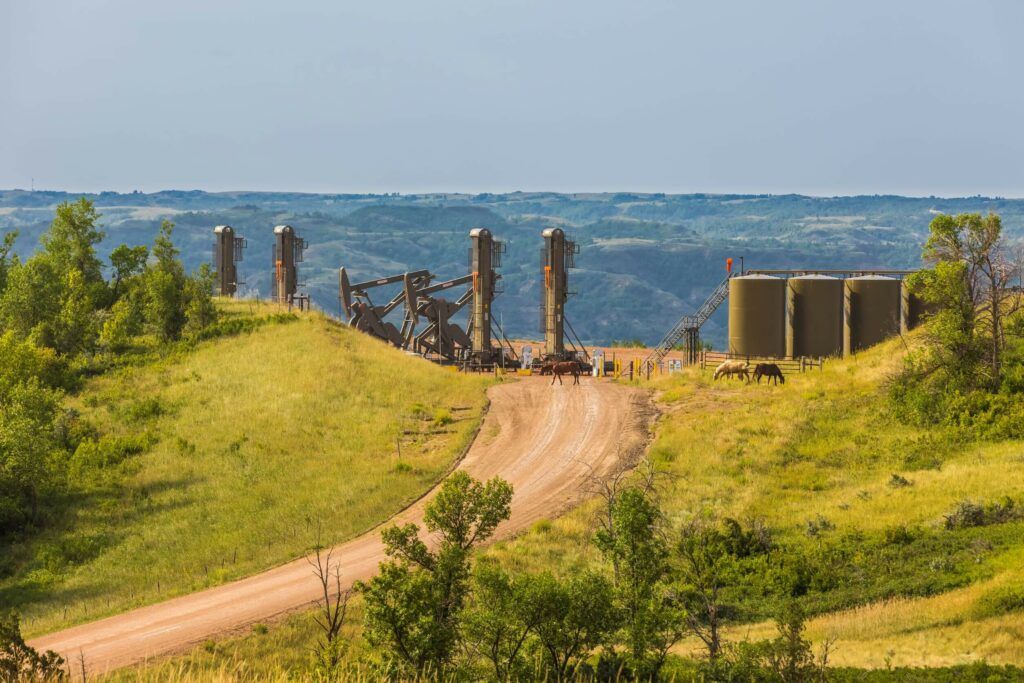EnCap Investments Plans Sale of Utah Oil Producer XCL Resources, Sources Say
(Reuters) — EnCap Investments is looking to sell XCL Resources, four people familiar with the matter said, two years after the private equity firm's plan to combine the oil and gas producer with a local rival was thwarted by U.S. antitrust regulators.
XCL, one of the largest energy producers in the Uinta shale formation of Utah, could be worth at least $2.8 billion including debt, and could achieve a higher valuation when accounting for its undeveloped assets, the sources said.
RELATED: EnCap Eyes $5 Billion Sale of Bakken Shale Producer Grayson Mill
Investment bankers at Jefferies Financial Group are running the sale process for XCL, which kicked off earlier this month, the sources added, requesting anonymity because the matter is confidential.
An EnCap spokesperson declined comment, as did a Jefferies spokesperson. XCL and Rice Investment Group, which owns a minority position in XCL, did not respond to requests for comment.
EnCap first invested in XCL in 2018 with a $400 million capital commitment. XCL has around 45,000 net acres in the Uinta, according to its website.
The company produces around 55,000 barrels of oil equivalent per day, the sources said. XCL also owns assets used for transporting water used in energy production. A sand mine the company is developing to source the material used in the fracking process to break open rock will be online later this year.
The type of oil extracted in the Uinta is unlike any other crude grade found in the United States, with a waxy consistency and a high paraffin content, according to Utah's Department of Environmental Quality.
EnCap agreed in August 2021 to buy EP Energy, which had assets in the Uinta and South Texas, for $1.5 billion, with the aim of merging EP's Uinta assets with XCL.
However, the Federal Trade Commission threatened to sue and block the deal over fears it would reduce competition and lead to higher prices for Utah consumers. Crescent Energy acquired EP's Uinta assets in 2022 instead.
A new suitor for XCL may not face the same antitrust hurdles. The FTC said earlier this month the Uinta Basin's competitive landscape had "changed significantly" since the aborted EP deal, as more oil production and an increased number of operators reduced the risk of producers raising prices unilaterally.
U.S. oil and gas producers went on a $192 billion buying spree in 2023, taking advantage of acquirers' high stock prices to secure lower-cost reserves. The FTC is now scrutinizing many of these deals.
Related News
Related News

- Enbridge Plans 86-Mile Pipeline Expansion, Bringing 850 Workers to Northern B.C.
- Intensity, Rainbow Energy to Build 344-Mile Gas Pipeline Across North Dakota
- U.S. Moves to Block Enterprise Products’ Exports to China Over Security Risk
- 208-Mile Mississippi-to-Alabama Gas Pipeline Moves Into FERC Review
- Court Ruling Allows MVP’s $500 Million Southgate Pipeline Extension to Proceed
- U.S. Pipeline Expansion to Add 99 Bcf/d, Mostly for LNG Export, Report Finds
- A Systematic Approach To Ensuring Pipeline Integrity
- 275-Mile Texas-to-Oklahoma Gas Pipeline Enters Open Season
- LNG Canada Start-Up Fails to Lift Gas Prices Amid Supply Glut
- Kinder Morgan Gas Volumes Climb as Power, LNG Demand Boost Pipeline Business





Comments